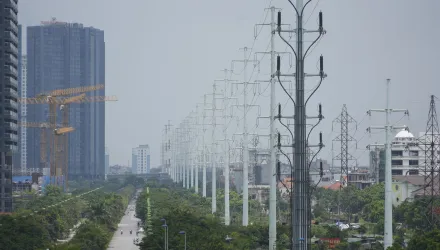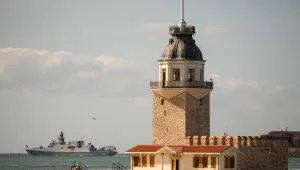Abstract
Several scholars studying energy relations between Europe and Russia have grappled with the question of why such fragmented governance architecture has emerged between these two actors. While this question seems obsolete in the context of the current EU–Russian political impasse, it is, at the very least, odd that despite the standoff, plans for the South Stream pipeline have until recently proceeded almost apace.1 How has this been possible? It is now widely, albeit reluctantly, accepted that Europe depends on Russia's gas and that Russia, in its turn, cannot do without the lucrative EU market. While this reality is basically indisputable, at the macro level this energy trade relationship has been marked with controversies since the breakup of the Soviet Union.
Despite the frostiness at what I will call the macro-level, in the past decade, individual EU states and the Kremlin have signed a handful of IGAs for joint pipeline development. Even more importantly, EU companies have concluded a number of important deals with Gazprom: pipelines have been built together, asset swaps concluded, and joint ventures implemented. All this has occurred against the background of increasingly tense relations at the macro level. Therefore, the biggest dilemma when looking into the black box of the EU-Russia gas relationship is how we might make sense of such a vast, multi-faceted, and yet deeply fraught relationship, occurring at so many different levels with varying actors. This article considers a number of political explanations for gas policy and shows that it is usually the economic interests of big energy firms that frequently take precedence, although these are often ignored and hidden as factors.
1 Most recently, Putin personally declared that Gazprom would abandon the South Stream pipeline; it will build a large pipeline to Turkey instead with a possible gas hub on the border with Greece. Insiders close to the Kremlin noted that even Gazprom’s CEO Aleksei Miller had no prior knowledge of President Putin’s sudden decision (Interview with Russian gas executive, May 2015, Moscow). The gas hub by the Greek border could be used to supply Southern Europe if there is demand. See for example, http://www.nytimes.com/2014/12/02/world/europe/russian-gas-pipeline-turkey-south-stream.html.
Skalamera, Morena. “Invisible but not indivisible: Russia, the European Union, and the importance of “Hidden Governance”.” Energy Research & Social Science, February 2016
The full text of this publication is available via Energy Research & Social Science.





